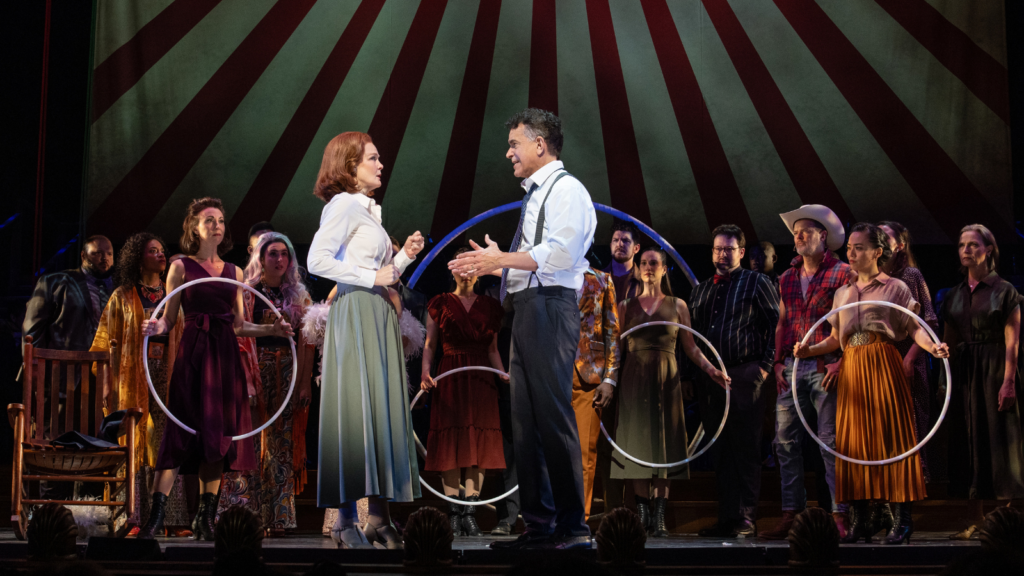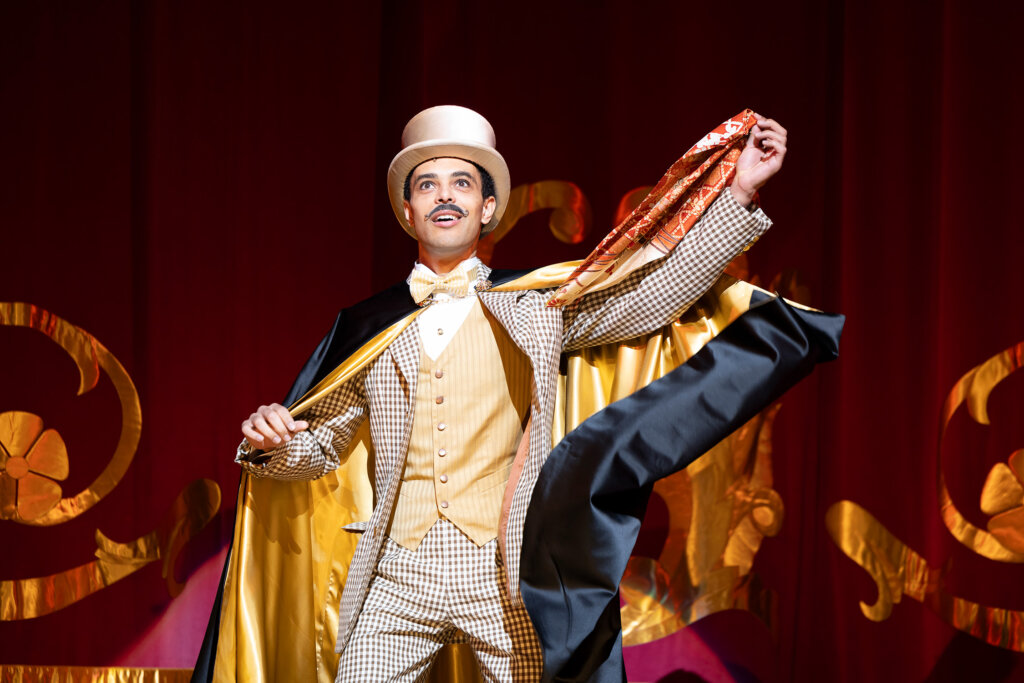
Update: Due to the ongoing pandemic, the Komische Oper is revising its performance schedule for the 2020-21 season. The situation is currently in flux, and we are recording changes as they become definite.
Berlin is already abuzz with plans for next season, when the Komische Oper will collaborate with the Berliner Ensemble and the Berlin Philharmonic on a Kurt Weill festival the likes of which the city has not seen in years, harking back to the observation of his centenary in 2000 or the 1975 Berliner Festwochen. For ten days in February 2021, Germany’s capital hosts stage productions, concerts, and a symposium in the form of new stagings, revivals, and a new version of an existing work. A worthy successor to the “Berlin im Licht” festival of 1928, in which Weill participated–in fact, they have adopted the same title for the 2021 festivities.
From the Komische Oper’s press release (translated from German):
“Few composers could bring together in one festival a theater, an opera house, and a concert hall. With his unparalleled music, whether composed for the stage or not, Weill shaped the sound of the metropolis of Berlin in the 1920s across dramatic and musical genres. The Berliner Ensemble, the Berlin Philharmonic and the Komische Oper Berlin, three of the greatest and most renowned cultural institutions in Berlin and beyond, are bringing this sound into the 21st century and celebrating Kurt Weill’s oeuvre together.
“Naturally, such a festival should not forgo the world-famous works on which Weill collaborated with Bertolt Brecht, represented by Aufstieg und Fall der Stadt Mahagonny in a new production of the Komische Oper Berlin and Die Dreigroschenoper at the Berliner Ensemble in a new production by Barrie Kosky. Beyond Brecht, Weill was a gifted composer who alternated between avant-garde and tradition, amply demonstrated through performances, concerts, readings, and a joint symposium. Late-night events and a party will round out the festival. On stage: Kirill Petrenko, Dagmar Manzel, Constanze Becker, Donald Runnicles, HK Gruber, Barrie Kosky and other artists from the ensembles of the three houses. For Kurt Weill, only the best that Berlin has to offer in terms of artistic personalities!” #KOBWeillTage
Not all details have been set, so there will be more information to come. The following events have been announced:
Stage Works

Aufstieg und Fall der Stadt Mahagonny: Komische Oper. Directed by Barrie Kosky; conducted by Ainārs Rubiķis. Premiere TBD. Allan Clayton and Nadja Mchantaf take the roles of Jimmy and Jenny, respectively. (Aufstieg forms part of a group of four 20th-century works of musical theater in Komische Oper’s season, including Katya Kabanová (Janáček), Oedipe (Enescu), and Pierrot lunaire (Schoenberg), selected because they “changed our understanding of what opera can be.”)
Die Dreigroschenoper: Berliner Ensemble at the Theater am Schiffbauerdamm. Barrie Kosky, director; Adam Benzwi, conductor. Dates to be announced. Kosky’s highly anticipated new production supplants the long-running Berliner Ensemble production by Robert Wilson, recently closed.
Der Silbersee (concert performance): Komische Oper and Berliner Ensemble. HK Gruber, conductor. 10 and 12 February 2021.
Tom Sawyer: Komische Oper. Directed by Tobias Ribitzki; conducted by Kai Tietje; book by John von Düffel. Premiere TBD. For family audiences. This recently created piece, derived from Weill and Maxwell Anderson’s unfinished adaptation of The Adventures of Huckleberry Finn with additional songs, has already made the rounds of German stages. This newly revised and enhanced version will be performed for the first time at the Komische Oper.
Concerts
11-13 February: The Berlin Philharmonic under Kirill Petrenko presents Weill’s Symphony no. 1, sometimes known as the “Berliner Sinfonie,” along with Stravinsky’s Oedipus Rex. A family concert on 14 February also includes Symphony no. 1.
16 February: Scholarship students of the Karajan Academy present the Violin Concerto and Symphony no. 2. Marie Jacquot conducts; Kolja Blacher appears as violin soloist.
18-20 February: The Berlin Philharmonic under Donald Runnicles performs Das Berliner Requiem and Die sieben Todsünden, the latter directed by Simon McBurney with the participation of Gerard McBurney. The program is the same as that given by the Los Angeles Philharmonic in February 2020 under Esa-Pekka Salonen.
27 February: Members of the Berlin Philharmonic perform “Berlin im Licht,” Kleine Dreigroschenmusik, and Suite panaméenne.
Other Events
In addition to the concerts listed above, which take place during the festival period, Berlin enjoys several other Weill programs during the 2020-21 season, ranging from reprises of a popular song evening by Katharine Mehrling and Barrie Kosky to a performance of Weill’s first stage work, Zaubernacht. Please see our performance calendar for details.
On 12-14 February, all three organizations will hold a symposium titled “Berlin im Licht?,” a wide-ranging consideration of the German theater of the 1920s with particular focus on Weill and Brecht. The participants will consider the revolutionary effects of theatrical innovations in their own time as well as their effects on future generations. According to current plans, the Komische Oper, the Philharmonic, and the Berliner Ensemble will each host one day of the symposium.
If all that isn’t enough to whet your appetite, we will continue to bring you the latest as it emerges. Advance ticket sales begin 7 April 2020.
Photos by Jan Windszus Photography. Copyright by Komische Oper Berlin.
Features
Barrie Kosky’s video introduction to the 2020-21 season
Komische Oper season program
Komische Oper press release
Berliner Ensemble press release (for Die Dreigroschenoper)
Learn more about Aufstieg und Fall der Stadt Mahagonny
Learn more about Die Dreigroschenoper
Learn more about Der Silbersee
Learn more about Tom Sawyer
Learn more about Symphony no. 1
Learn more about Symphony no. 2
Learn more about the Violin Concerto
Learn more about Das Berliner Requiem
Learn more about Die sieben Todsünden
Learn more about Kleine Dreigroschenmusik
Learn more about Suite panaméenne


